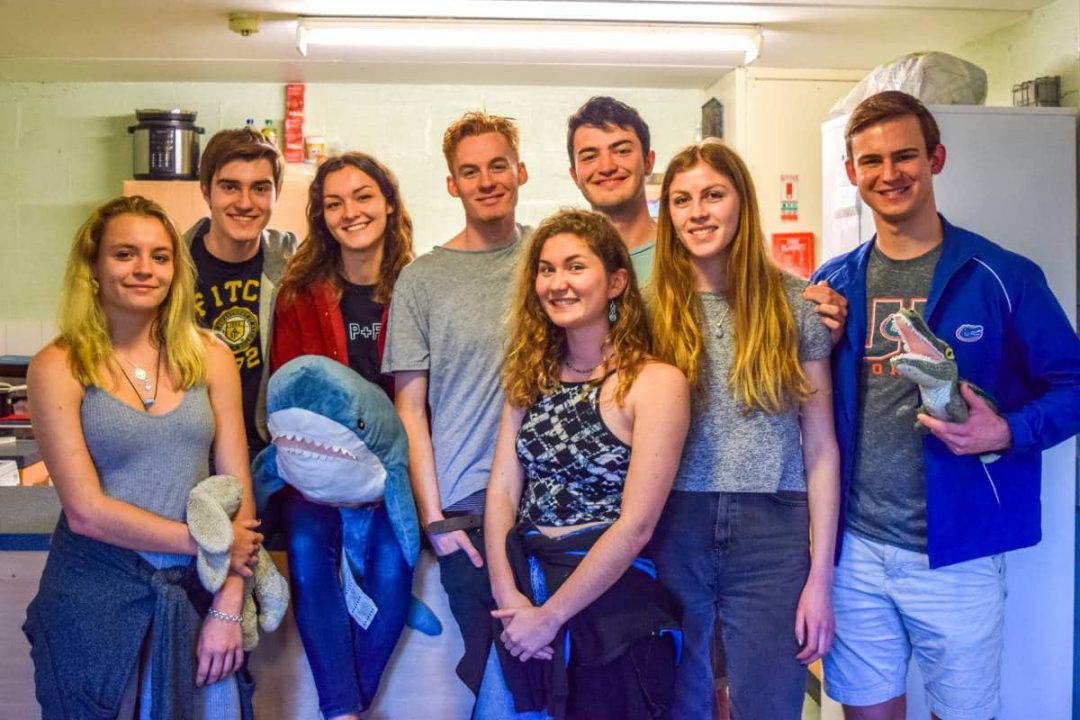Three unexpected lessons I learned during my semester in England
By Robert Skrob, BSBA ’21
I boarded the 143-double-decker bus from Stopford for the last time. My final exam ended moments before. I was ready to pack up to head back to the States and spend my remaining few days in Manchester with my flat mates. I watched the Uni buildings pass by. The memories followed. I remembered my nervous first day of courses, the late nights I explored the city with friends, and the moment I was able to let go of homesickness and truly feel part of Manchester. I thought about what I learned, how I grew, and what I’d do differently when coming back home. Below are three lessons I learned over five months, 5,000 miles away from home.
Development of Identity
Everyone enjoys being around people that agree with them. But when you spend time with people that don’t challenge your own beliefs, blindness develops. You no longer question the reasoning behind your opinions and if they’re even your original opinions at all. I’ve learned the most about myself from those who are opposite from me.
Studying abroad dropped me in the middle of the most diverse place I’ve ever been to. Through group projects, flat mates, and friends of friends, I’ve met people from dozens of countries. I began to notice cultural expectations. For example, I discovered how Chinese students were closely connected with their community in a more collectivist way than America. When a company is suffering in America, an individualistic-based country, executives maintain their salaries and lay off workers. In China, Korea, and Japan, collectivist countries, managers take pay-cuts so that no one loses their job.
My conclusion is that no way is superior to another. Arguments can always be made on which aspects of different cultures are better or worse. In the end, it’s up to you to choose your identity, your values and your goals.
International Perspective
Few examples from my courses were about America, which seem to be at the center of most university lessons in the United States. Students and professors provided examples from countries in Europe and Asia off the top of their heads during class debates. By the end of the hour, I could explain the political and economic climate of countries I hadn’t known existed before class started.
Chatting with people from countries I’d never visited was one of the most interesting learning experiences while abroad. Getting a grasp of the differences in culture and values was fascinating. I was most impressed by how diverse and accepting the students were. The cultural differences were clear and I often felt a little out of place because people would ask me about my American accent. However, I never felt discriminated against or treated any differently in Manchester because I am from Florida.
Improving Skills
Turns out, when you find yourself in a foreign country on crutches with no idea where anything is, friends can be quite helpful. I couldn’t understand every other word my flat mates said during the first week, but I did my best to befriend them. One unexpected challenge was how few things I found in common with others initially. My flat mates were from different countries, held different values, and their culture was very different. I had to focus on the fundamentals for a base (everybody likes food) and develop connections off of their interests. This situation taught me the skills to befriend others who have almost nothing in common with me.
My courses were completely different in terms of culture and testing. Since final exams are at the end of the semester, students are more relaxed and self-study for the long term rather than worry about exams every three weeks like business students at UF do. I was most concerned with the essay testing method. I had no idea what to expect. My study habits adjusted for the change and I read significantly more of the textbooks. Now, I feel more comfortable studying for essay exams, and since my courses required me to think critically and form original arguments, I feel I’ve improved in creating solid arguments and better communicating my ideas.
My study abroad program felt like a vacation with periods of studying. Time passed like the long 10-hour plane ride home. I checked in every once in a while and slowly watched the time fade by. Some moments I missed home. Others I was so distracted I didn’t notice time passing at all. The semester came to an end. And like plane rides, I was moving on to the next thing faster than I expected to. In the end, I’m glad that when I landed, I brought back more than Biscoff cookies and packaged peanuts. A toast to my friends and the good times in Manchester. Cheers!




